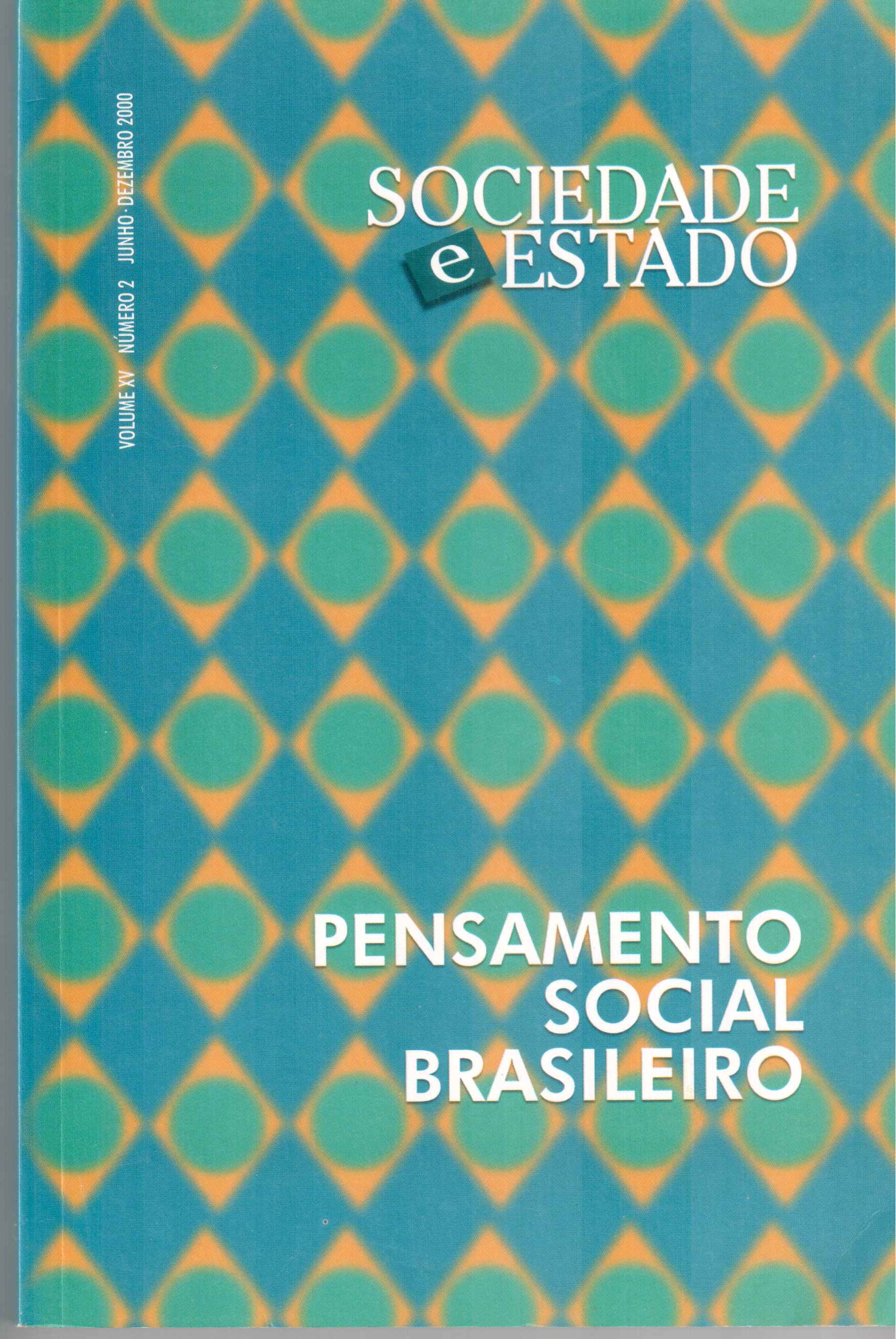PATRIARCADO, SOCIEDADE E PATRIMONIALISMO
Keywords:
Brasil, patriarcado, patrimonialismo, feminismo, teoria.Abstract
In this text we search the meaning of the patriarchate
concept in the Brazilian Social Thought. We observe how the
dominance system is conceived in a wide form that incorporates
the dimensions of sexuality, of reproduction and of the relationship
between men and women in the context of a slavery system. We
sustain that, if even in the societies where the public differs from
the private, the gender relations remain patriarchal, in the scope
of the patrimonial societies the involvement between public and
private did not result in a larger political or economic participation
of the women in this sphere for the own patriarchal origin of the
bureaucracy in the context of a patriarchal patrimonialism
Downloads
References
ADAMS, Julia (1994). “The familial state; elite family practices and
state-making in the early modern Netherlands”. Theory and
Society, 23/24, August.
AGARWALA, Bina (org.) (1988). Structures of patriarchy: the state,
the community and the household. New Delhi: Indian
Association for Women’s Studies.
AGUIAR, Neuma (org.) (1984). A mulher na força de trabalho na
América Latina. Rio de Janeiro: Vozes.
AZEVEDO, Fernando de (1949). Canaviais e engenhos na vida
política do Brasil. São Paulo: Edições Melhoramentos.
BUTLER, Melissa A (1978). “Early liberal roots of feminism: John Locke
and the attack on patriarchy”. American Political Science
Review, n.º 72.
COWARD, Rosalind (1983). Patriarchal precedents: sexuality and
social relations. Londres: Routledge and Kegan Paul.
CROMPTON, Rosemary (1993). Class and stratification: an
introduction to current debates. Cambridge: Polity Press.
CROMPTON, Rosemary, MANN, Michael (eds.) (1994). Gender and
stratification. Cambridge: The Polity Press.
DORIA BILAC, Elizabeth (1996). “Mãe certa, pai incerto: da construção
social à normatização jurídica da paternidade e da filiação”.
Trabalho apresentado ao XX Encontro Anual da ANPOCS,
GTO821.DOC.
DUARTE, Nestor (1966). A ordem privada e a organização política
nacional. São Paulo: Companhia Editora Nacional.
EISENSTEIN, Zillah (1979). Capitalist patriarchy and the case for
socialist feminism. New York: Monthly Review Press.
______________ (1981). The radical future of liberal feminism.
New York: Longman.
FAORO, Raimundo (1958). Os donos do poder. Porto Alegre: Globo.
______________ (1993). “A aventura liberal numa ordem patrimonialista.
Dossiê liberalismo, neoliberalismo”. Revista da
USP, n.º 17, março-maio.
HARTMANN, Heidi (1981). “The unhappy marriage of marxism and
feminism: towards a more progressive union”. Women and
Revolution: A Discussion of the Unhappy Marriage of
Marxism and Feminism, Lydia Sargent (ed.) p. 1-41.
LAND, H. (1980). “The Family Wage”. Feminist Review, n.º 6, p. 55-77.
LOCKE, John (1967). Two treatises of government. Organizada por
P. Laslett. Cambridge: Cambridge University Press.
MAINE, Henry Summer (1970). Ancient law. Gloucester, Mass.:
Peter Smith.
PATEMAN, Carole (1988). The sexual contract. Stanford, California:
Stanford University Press.
______________ (1989). The disorder of women: democracy,
feminism and political theory. Stanford, California: Stanford
University Press.
SAVAGE, Mike e WITZ, Ann.(orgs). Gender and bureaucracy. Oxford:
Blackwell Publishers
SHANLEY, Lindon e PATEMAN, Carole (1989). Feminist interpretations
and political theory. The Pennsylvania State University Press.
VAITSMAN, Jeni (1994). Flexíveis e plurais: identidade, casamento
e família em circunstâncias pós-modernas. Rio de
Janeiro: Rocco.
VIANNA, Oliveira (1938). Populações meridionais do Brasil. São
Paulo: Companhia Editora Nacional.
______________ (1955). Instituições políticas brasileiras. Rio
de Janeiro: Livraria José Olympio Editora.
WALBY, Silvia (1990). Theorizing patriarchy. Oxford: Brasil Blackwell.
WEBER, Max (1947). The theory of social and economic
organization. Organizada por T. Parsons. Glencoe-Ill: The
Free Press e The Falcon Wing Press.
______________ (1964). Sociology of religion. Boston: Beacon Press.
______________ (1978). Economy and society. Organizada por
Guenther Roth e Claus Wittich. Berkeley: The University
of California Press, 2 vols.
______________ (1961). General economic history. New York:
Collier Books.
WITZ, Ann (1992). Professions and patriarchy. Londres e New
York: Routledge.
Downloads
Published
How to Cite
Issue
Section
License
Copyright (c) 2022 Revista Sociedade e Estado

This work is licensed under a Creative Commons Attribution-NonCommercial 4.0 International License.











